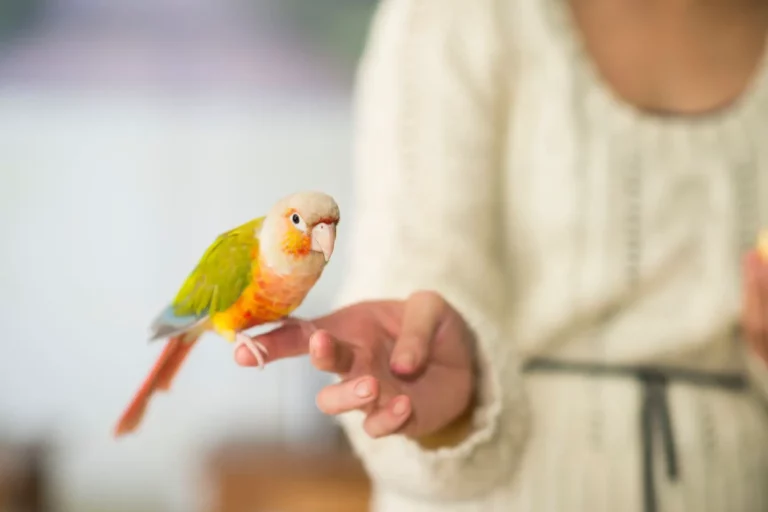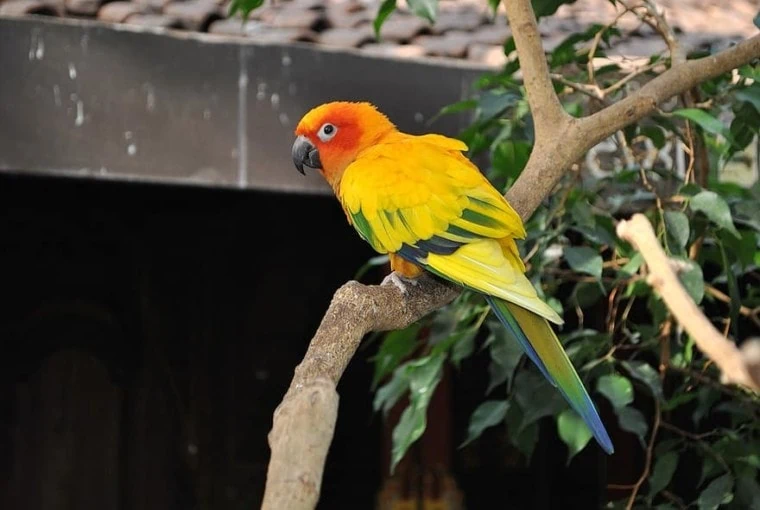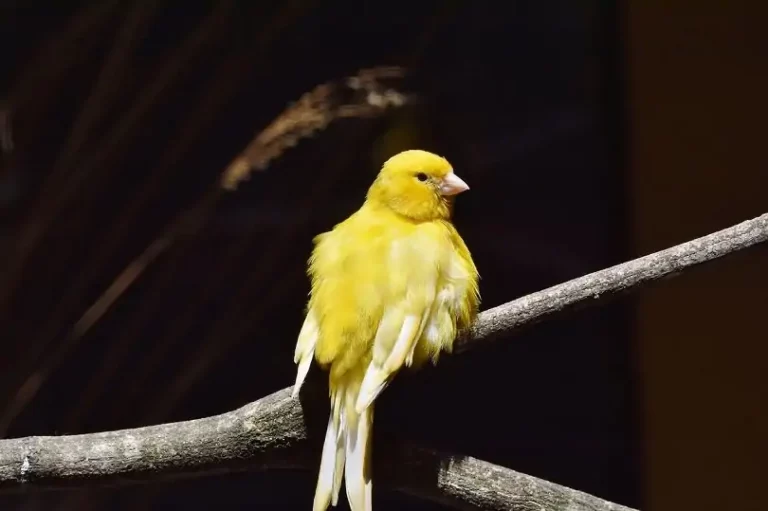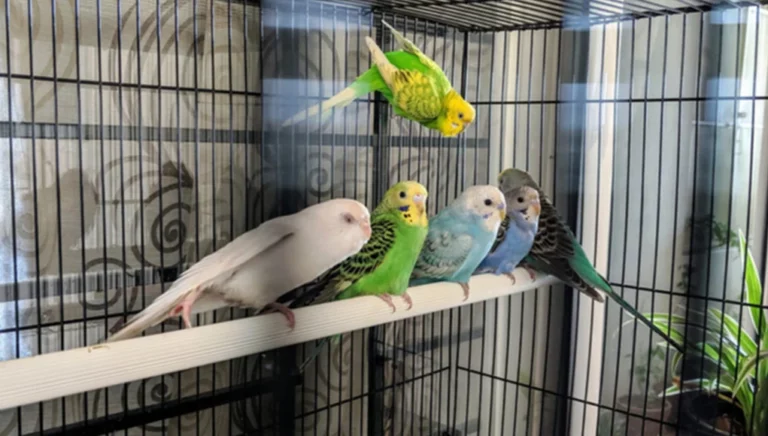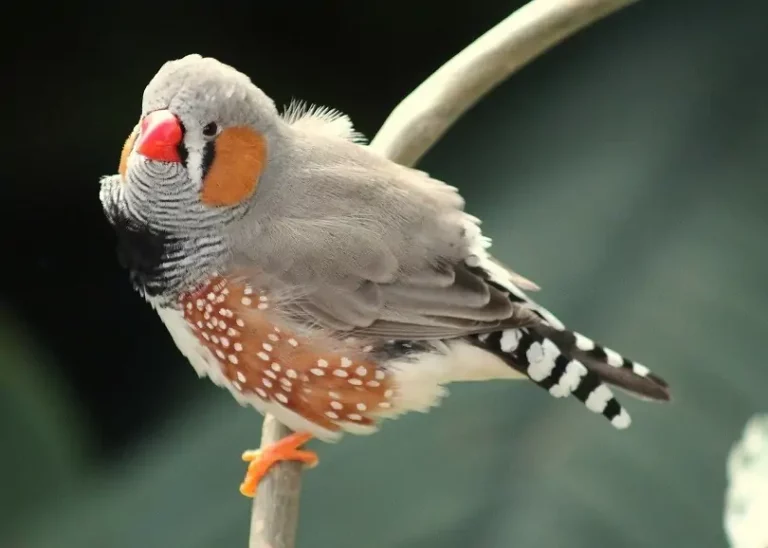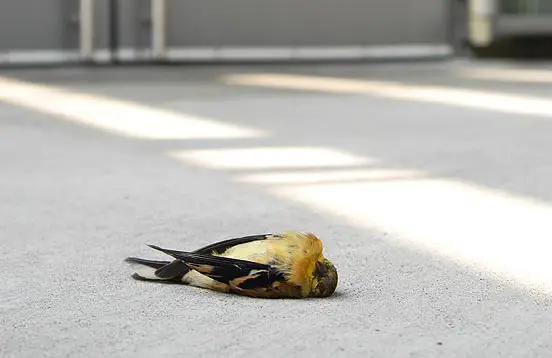How Long Can Parakeets Go Without Food?
Welcome to our in-depth discussion on a crucial topic for all parakeet owners: how long can parakeets go without food? Parakeets, or budgies as they’re often known, are delightful little birds known for their vibrant colors, charming personalities, and vocal abilities.
However, their care requires understanding some key aspects of their biology and habits. One of the most important topics is their nutritional needs, including the length of time they can safely go without food.
In this blog post, we’ll delve into this subject, offering comprehensive insights to help ensure your feathered friend’s well-being.
Key Takeaways:
- A parakeet’s metabolism is much faster than that of humans, so regular feeding is vital.
- Always ensure your parakeet has access to fresh water and food.
- Be aware of the signs of malnutrition and dehydration in parakeets.
- Your bird’s diet should be varied and nutritionally balanced, not just seeds.
- Extended periods without food can lead to severe health complications.
Read on to fully understand why these points are crucial to your parakeet’s health and happiness.
Short Answer: Parakeets should ideally have access to food at all times. In extreme situations, a healthy parakeet may survive without food for up to 48 hours, but this can be highly stressful and detrimental to their health. Water is even more critical – parakeets need constant access to fresh water and cannot go more than a day without it.
Parakeet Survival Without Food and Water
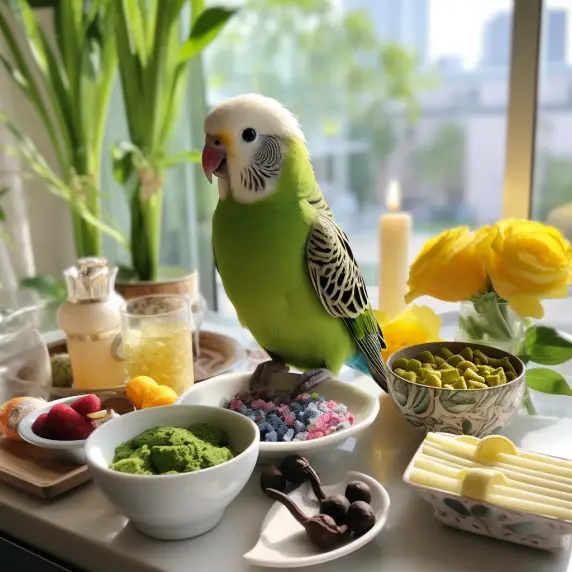
The topic of how long can parakeets go without food is one often approached with concern and curiosity by bird owners. It’s essential to underline that parakeets, being small birds, have a fast metabolism and high energy demands. Their body condition can deteriorate quickly without proper sustenance.
How Long Can a Budgie Live Without Food and Water?
Though parakeets can potentially survive up to 48 hours without food, this should never be considered a norm. Prolonged periods without nourishment can lead to severe stress, weight loss, weakened immunity, and eventually, death.
Water is even more critical. Parakeets can dehydrate in less than 24 hours, which can lead to fatal complications.
How Long Can Parakeets Go Without Water?
Water is not only vital for hydration but also for regulating body temperature, digestion, and waste disposal in birds. Without it, a parakeet can become dehydrated in under a day. Constant access to clean, fresh water is therefore non-negotiable in caring for your pet.
How Long Do Budgies Live on a Seed Diet?
Seeds are a natural part of a parakeet’s diet, but they should not constitute the entire diet. Parakeets living solely on a seed diet can suffer from nutrient deficiencies, leading to a shortened lifespan and various health issues.
A balanced diet should include a variety of foods, like vegetables, fruits, and high-quality bird pellets, alongside a moderate quantity of seeds.
While these timelines offer a rough guide, the golden rule is simple: never knowingly let your parakeet go without food or water. Always strive to provide them with a balanced diet and ensure they have access to clean water at all times. This way, you significantly increase the chances of your parakeet leading a long, healthy, and happy life.
Impact of Starvation and Dehydration on Parakeets
Understanding the adverse effects of starvation and dehydration on parakeets helps illustrate the importance of consistent access to nutrition and hydration.
Parakeets are susceptible to the negative impacts of starvation and dehydration in ways similar to other creatures. When these small birds don’t eat regularly, they rapidly lose body mass, particularly muscle, which can cause significant harm and even be fatal.
Parakeets deprived of food show signs of weakness, and lethargy, and may have difficulty flying or maintaining balance. They could also exhibit noticeable weight loss and exhibit behavioral changes, such as reduced chirping or other vocalizations.
Dehydration is another critical issue for these small birds. As mentioned earlier, parakeets can become severely dehydrated in less than 24 hours without water. Symptoms of dehydration in parakeets include lethargy, panting, sunken eyes, and a decrease in urine output (urates in the droppings will look more concentrated).
Chronic starvation or dehydration can lead to a weakened immune system, making your parakeet more susceptible to various illnesses. Therefore, it is essential to ensure your parakeet has regular access to nutritious food and fresh, clean water to maintain optimal health and well-being.
Understanding Parakeet Dietary Requirements: Beyond Seeds
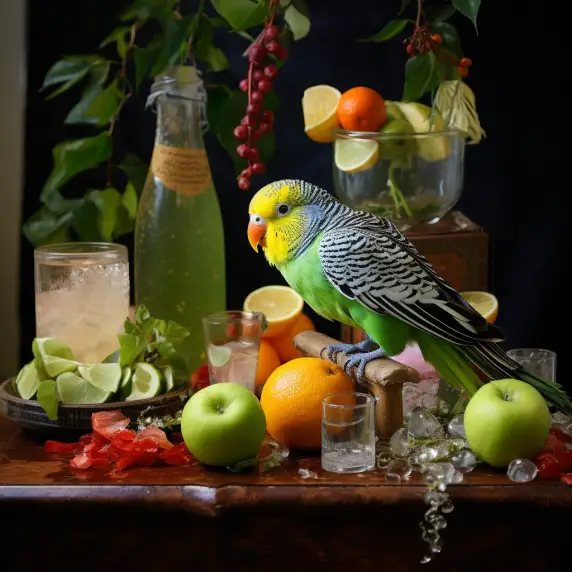
While seeds have traditionally been the primary component of a parakeet’s diet, modern avian nutrition knowledge tells us that parakeets require a much more varied diet for optimal health.
A diet based solely on seeds, particularly sunflower seeds, can lead to nutritional imbalances. This is primarily because seeds are high in fat but deficient in many essential nutrients, like Vitamin A and calcium.
A balanced parakeet diet should include a variety of fresh fruits, vegetables, grains, and some high-quality, commercially-prepared pelleted foods.
Pelleted foods are designed to be nutritionally complete and help prevent selective feeding, where birds pick out their favorite seeds and miss out on other essential nutrients. Pelleted diets can help ensure your parakeet gets the full range of nutrients it needs to stay healthy.
When it comes to fruits and vegetables, try to provide a colorful variety to your bird. Many parakeets enjoy apples, oranges, bananas, berries, spinach, peas, and carrots. Remember to wash all fruits and vegetables thoroughly and remove any seeds or pits as these can be harmful.
Remember that while a varied diet is crucial, moderation is also key. For instance, while fruits are healthy, they are also high in sugar and should be given in moderation.
Feeding your parakeet a balanced diet is a long-term investment in their health and well-being, making them less likely to become ill and more resilient if they do. A well-nourished parakeet is also more likely to withstand a brief period without food if it should ever occur.
Caring for Your Parakeet’s Dietary Needs: Ensuring Consistent Supply
Parakeets, like all birds, are creatures of routine. They thrive when their daily needs, including food, are consistently met. A steady supply of food throughout the day not only keeps them healthy but also keeps them mentally stimulated.
While parakeets have a unique ability to manage periods without food, it’s crucial to avoid these situations for your bird’s well-being. Birds do not show illness or weakness readily due to their prey nature, so it’s best to ensure their needs are regularly met.
When planning to be away, take steps to ensure your parakeet’s food supply remains uninterrupted. Here are some measures to consider:
- Automated bird feeders: These devices can provide a steady supply of food for your bird when you are away. They come in various styles and sizes, ensuring you’ll find one that fits your cage and the number of birds you have. However, remember that these feeders only supply dry food. Therefore, they are not a replacement for fresh fruits, vegetables, or human interaction.
- Hire a pet sitter: If you’ll be away for more than a day, consider hiring a pet sitter who can come to your home and take care of your bird’s needs. This person can ensure your parakeet’s diet remains varied and they receive some social interaction.
- Ask a friend or neighbor: If a pet sitter is not an option, ask a trusted friend or neighbor to check in on your bird. Provide them with clear instructions on what your bird eats, when, and how much.
- Pet boarding: If you’ll be away for an extended period, another option might be a reputable pet boarding facility. These facilities should provide daily care for your bird and meet all their needs.
Remember, consistency is key when caring for a parakeet. A well-cared-for parakeet that receives a balanced diet daily will be more resilient and happy. It’s also a good idea to make your parakeet familiar with different types of food so they can adapt more easily to different feeding situations.
What to Do If Your Parakeet Is Not Eating or Drinking
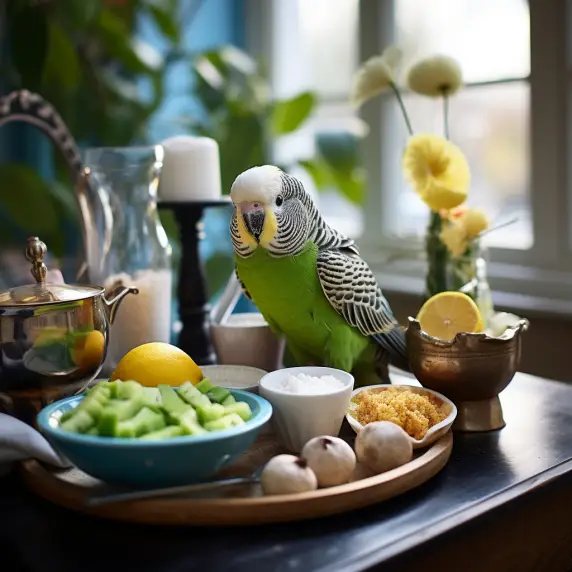
An essential part of caring for your parakeet is being alert to changes in their behavior, including their eating habits. Noticing that your parakeet is not eating or drinking, as usual, can be cause for concern. Here’s what you can do to address this issue effectively:
Observe Your Bird: First, note your bird’s behavior and physical condition. A loss of appetite can be accompanied by lethargy, weight loss, or other unusual behavior. Noting these details will help your vet make a diagnosis.
Encourage Eating: Offer your bird their favorite foods. Sometimes, just like us, birds may prefer one food over another. If your bird is feeling unwell, they might only eat their favorites. Providing a variety can also help stimulate their appetite. However, this is a temporary solution, and the cause of the appetite loss still needs to be addressed.
Seek Veterinary Assistance: If your parakeet continues to avoid food and water, it’s time to seek professional help. The sooner your bird sees a vet, the better. A vet who specializes in avian care will have the necessary knowledge and tools to diagnose and treat your bird. They may perform various tests, like blood tests or X-rays, to understand what’s going on.
Follow the Vet’s Instructions: If your vet prescribes medication or a special diet, ensure you follow the instructions carefully. It might take time for your parakeet to recover its appetite and return to normal behavior. Be patient and offer plenty of care during this time.
Remember, it’s crucial not to let a parakeet go without food for more than 24-48 hours. If your parakeet is refusing food and water, treat it as a potential emergency, and seek immediate veterinary care.
Frequently Asked Questions
How long can parakeets live without food?
Parakeets can survive without food for 24-48 hours under normal conditions. However, factors such as their overall health, age, and environmental conditions can impact this duration. It’s crucial not to let a parakeet go without food for more than 24 hours, as it can quickly become a health emergency.
Can I leave my parakeet alone for 4 days?
It’s not advisable to leave your parakeet alone for 4 days. Parakeets require daily care, including fresh food and water. They are also social creatures and can suffer from loneliness and stress if left alone for too long. If you must be away, consider arranging for a pet sitter or trusted friend to check on your bird daily.
Can I leave my parakeets for 3 days?
As with the above, it’s not recommended to leave parakeets alone for 3 days. Their food and water supplies may deplete, and they could also suffer from stress due to isolation. If you have to be away, ensure someone is available to provide daily care for your birds.
How often should parakeets eat?
Parakeets should have access to food at all times. They typically eat throughout the day, with peak feeding times often occurring in the morning and late afternoon. Remember, a balanced diet for parakeets includes a mix of seeds, pellets, fruits, vegetables, and an occasional treat of hard-boiled egg or cooked chicken.
Regular fresh water should also always be available.
How long can a budgie live without food and water?
Budgies, like all parakeets, typically can’t go more than 24-48 hours without food. As for water, a budgie can become severely dehydrated within a day without it. If your bird refuses to eat or drink for an extended period, it’s essential to seek veterinary care immediately.
How long can parakeets go without water?
Parakeets can become dehydrated within 24 hours without water. Dehydration can lead to serious health issues, even more quickly than hunger. It’s critical to ensure your parakeet has access to fresh, clean water at all times.
How long do budgies live on a seed diet?
While budgies can survive on a seed-only diet, it’s not ideal for their health. Such a diet lacks variety and essential nutrients, leading to potential health problems over time, including obesity and deficiencies.
A balanced diet for budgies should include seeds, pellets, and a variety of fresh fruits and vegetables. This balanced diet can support a budgie’s lifespan of up to 10-15 years, with some even living into their 20s with excellent care.
Conclusion
Understanding how long parakeets can go without food and water is critical to providing the proper care these vibrant, social birds require. However, knowing the limits should not encourage owners to test them.
Instead, it should underscore the importance of consistent, daily care. Remember, parakeets rely on their human caretakers for their basic needs, and a balanced diet is crucial to their overall health and longevity.
In conclusion, whether you’re a new parakeet owner or a seasoned bird enthusiast, ensure your parakeet has access to fresh food and water every day. Not only does this contribute to their physical health, but it also supports their mental well-being, as feeding is an integral part of their daily activities.
Keep an eye out for changes in your parakeet’s eating habits, as these can often be the first indicators of potential health issues. With the right care and attention, your feathered friend can thrive, bringing joy and companionship for many years.

